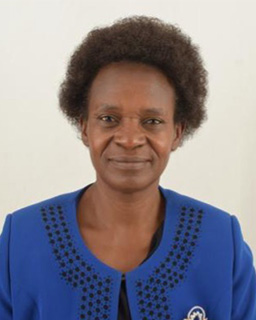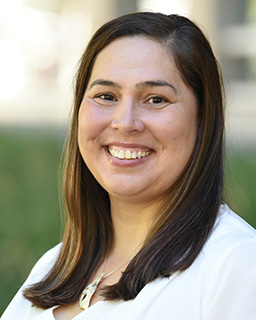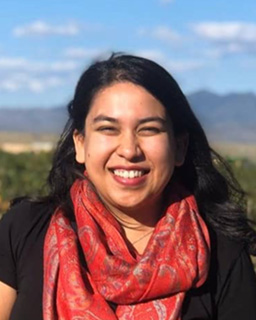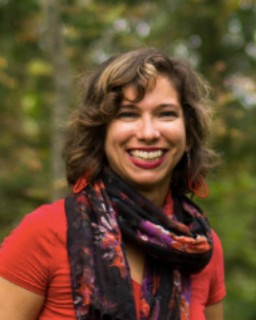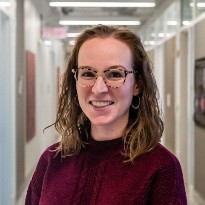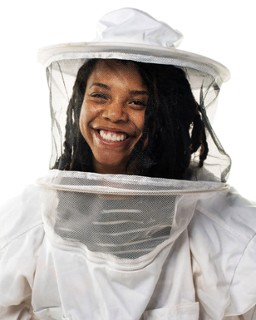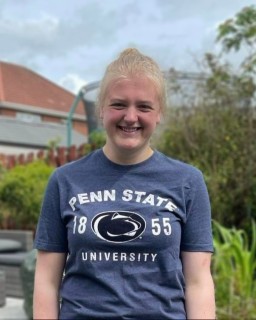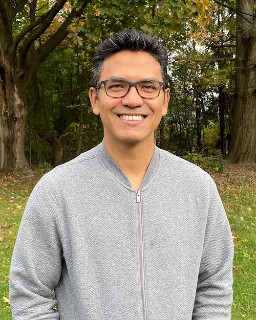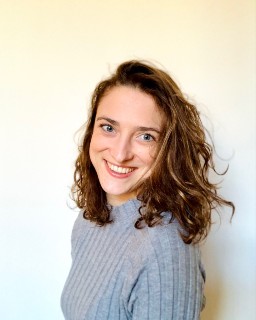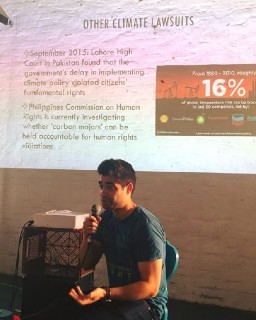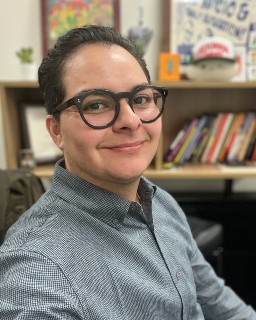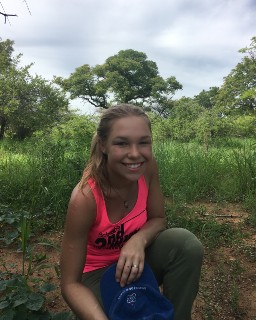President's Postdoctoral Fellowship Program (PPFP) Recipients
Fall 2023 Start
Dr. Inviolata Vicky Khasandi-Telewa
|
|
Dr. Inviolata Vicky Khasandi-Telewa is currently a PPFP fellow at the Center for African Studies. She attained her Ph.D. in Applied Linguistics and English Language Teaching from the University of Warwick, UK. She has been an Associate Professor of English Language Teaching and Applied Linguistics at Laikipia University, Kenya. She has been teaching in Laikipia University since 1997 and has just completed her term as the Dean of the School of Humanities and Development Studies and Acting Deputy Vice Chancellor Academics, Research and Student Affairs. She has supervised more than twenty-one graduate students to successful completion, and many are ongoing. Her research interests are inApplied Linguistics in African contexts, particularly Language-in-Education policies, Discourses of Gender, Religion, Politics and Governance, Refugees, and Ecolinguistics. She is the editor of CORETRAIN journal. Some of her publications include: Khasandi-Telewa, Vicky, Sinfree Makoni & David Bade (2022) Proverbial Futures: Proverbs and Political Discourse in Africa. ‘Everyone was happy when talking’: Revisiting the use of mother tongues in Kenyan Universities. In S. Makoni, C. G. Severo, A Abdelhay &A Kaiper –Marquez, The Languaging of Higher Education in the Global South: De-Colonizing the Language of Scholarship and Pedagogy. Routledge (2023) An ecolinguistic positive discourse analysis of ‘Mwambu and Sella’, a Bukusu oral narrative from Western Kenya. Language & Ecology Available www.ecoling.net; and (2023) Gender portrayal in the discourse of Death: Use of Euphemisms in Abagusii Dirges, RUWAZA AFRICA.
|
Dr. Susan Coltman
|
|
Dr. Susan Coltman is a PPFP fellow in the Kinesiology department at Penn State. Her interest in motor learning and control first stems from 15+ years as a world-ranked heptathlete in track and field. Susan’s interest in the mechanisms of motor learning and control has inspired research in a variety of areas throughout her academic career, from undergraduate studies to postdoctoral training. She holds a PhD in neuroscience, working under the supervision of Dr. Paul Gribble, in which the breadth of her research leveraged the behavioural analysis of upper-limb movements, combined with both computational modelling and electromyography, to study motor adaptation in young healthy adults. She values the intellectual challenge of learning skills that are outside of her comfort zone. During her first postdoctoral position, she decided to take a chance and study the mouse model of motor learning in order to gain a new perspective on the circuit-level brain mechanisms that contribute to precise motor control. From this experience, she gained a range of new skills related to microsurgery, behaviour shaping, and optimizing lab protocols. She completed her first project's multifaceted and rich dataset collection after nearly two years in an animal laboratory. At this point, Susan realized that her long-term scientific goal was to link individual differences in motor learning to fundamental theories of motor learning and motor control, and to use this new understanding to help people in the applied and clinical domains learn new motor skills and undergo rehabilitation. During her postdoc, she will explore non-invasive neural stimulation techniques to restore the functional motor control of the hand.
|
Dr. Rachel Fernandes
|
|
Dr. Rachel Fernandes’ research interests primarily lie in connecting diverse observations of planetary systems to fundamental theories in planet formation, while placing the Solar System and life on Earth into context. As a PPFP, Dr. Fernandes is working on the detection of transiting planets in young clusters, associations, and moving groups less than 1 Gyr old. Her goal is to compare the demographics of these planets with that of Kepler’s Gyr-old population in order to understand how these planets have evolved with time. More specifically, she is looking to demographically constrain the atmospheric mass loss rates in (sub)Neptunes, and as well as the migration timescales of Hot Jupiters. In addition to her individual research, Dr. Fernandes is also a part of the NASA NExSS Alien Earths team where we integrate research results from fourteen multi-disciplinary projects to advance our understanding of how nearby planetary systems formed and which systems are more likely to harbor habitable worlds. Identifying the closest, likely habitable worlds is a major goal of astrobiology and also a key step in NASA’s search for life in the Universe. Dr. Fernandes also serves as the Co-Chair of NASA’s ExoPAG Exoplanet Demographics Science Interest Group 2 (SIG2), along with Dr. Samson Johnson. SIG2's current priorities are to enable demographics via NASA’s JWST and Nancy Grace Roman Space Telescope, help provide constraints to the frequency of Earth-size habitable zone planets, and work towards synthesized demographics across various detection techniques.
|
Fall 2022 Start
Dr. Jane Sharon Akinyemi
|
|
Dr. Jane Sharon Akinyemi’s research is interdisciplinary and focuses on women’s health physiology, enabling structured interventions, combining physical activity and modest weight loss to lower NCDs such as type 2 diabetes risk by up to 58 percent in high-risk populations and improvements in insulin action, realizable with both aerobic and resistance training. Developing and implementing alternative indigenous music for aerobic dance exercise as a treatment package will improve the physiological health and well-being of women thereby promoting exercise adherence within a work-based physical activity program, in an effort to provide female workers with preferential physical activity. Selecting a music type such as indigenous music for aerobic dance class will unlock music from Yoruba, Hausa, and Igbo extractions as the workout progresses, exposing the participants to authentic customs, local rhythms, and native dance styles, as well as targeting physiological variables of women. As a PPFP fellow, she will engage in advanced biological laboratory techniques and field-based research techniques to assess the health of female athletes. Specifically, energetics, eating behaviors, reproductive health, bone health, and general well-being. This work will enable a more robust outcome that entails closing the research gap by studying female athletes who are from African countries because these groups are noticeably absent from the Triad literature. Closing these research gaps is essential because the number of girls and women engaging in sports in both westernized and non-westernized communities continues to increase, and this increase translates to enhanced concern regarding the number of girls and women suffering negative health outcomes. In the U.S., estimates that the prevalence of Triad conditions in high schools exceeds 70 percent is possibly attracting intervention. Similar research is warranted in African communities of athletes.
|
Dr. Keva Bui
|
|
At the intersection of transnational Asian American studies, critical militarization studies, and feminist science and technology studies, Keva Bui’s research explores how war permeates structures of knowledge production across the military-industrial complex—ranging from universities and corporate laboratories to the military battlegrounds that increase in Asia and across U.S. empire. As a PPFP fellow at Penn State, they are working on their book-in-progress, tentatively titled Terrains of the Experimental War: Racial Science during the U.S. Cold War in Asia. This project situates military technologies such as napalm, Agent Orange, and the nuclear bomb within a critical genealogy of U.S. racial science and eugenics, revealing how strategies of imperial war-making are inflected by scientific logic of experimentation and race-making. Engaging literary, historical, and cultural analysis, their work is committed to an abolitionist vision of demilitarization and foregrounds the work of writers, artists, activists, and thinkers that refuse militarized narratives of domination and cultivate relations across differences.
|
Dr. Lisa Erdman
|
|
Lisa Erdman’s research explores the use of arts-based methods in medical education. She is developing a card game aimed at facilitating improvisation and role-play for medical students in clinical communications courses. One of the goals of the game is to help students recognize and address health disparities in asthma patients of underrepresented communities
Erdman's achievements include:
Erdman is a fan of guinea pigs and other small rodents. She lived in Finland for 11 years. |
Dr. Kaeli Hughes
|
|
Dr. Kaeli Hughes is searching for cosmic neutrinos by building detectors in some of the most remote places on Earth. Neutrinos are excellent messenger particles because they don't interact very often, and their paths aren't bent while traveling through magnetic fields, meaning that when they interact on Earth, we can figure out exactly where they came from. Dr. Hughes is particularly interested in using neutrinos to learn about some of the highest energy particle accelerators in the Universe. The best place to build neutrino detectors is in very remote locations, because their interactions produce radio signals that can easily be mistaken for human-made backgrounds. Dr. Hughes is building experiments at the South Pole, in Summit Station Greenland, and on top of White Mountain in California, and she is excited about all of the physics we'll be able to learn from these ultra high energy neutrinos.
|
Dr. Anissa Kennedy
|
|
Anissa Kennedy uses honeybees as a study system for analyzing how chemical cues and internal physiology work together to influence behavior, from genes to the colony environment. She is particularly interested in understanding how queen, brood, and other worker pheromones interact at various levels of behavior and development. Her doctoral work focused on honeybee foraging behavior. Her thesis aimed to answer research questions regarding the genomic basis of a forager’s decision between using social versus private information. During her time, she was able to conduct experiments that explored gene expression differences between foragers that used either social or private information, how to reward perception and reinforcement influenced gene expression and the subsequent decision to use either social or private information, and how information is used over the lifetime of a forager. She was also able to collaborate with a colleague to explore her research interest on how queen presence influences worker gene expression at critical adult life stages and links the gene expression profiles to foraging activity. Alongside her behavioral studies, she analyzed gene expression profiles in the antennae and various brain regions. During her postdoc, she will be exploring a different avenue of my research interests focusing on intergenomic conflict. She will determine if matrigenes promote altruistic behavior in workers, by focusing on nursing behaviors. She will evaluate gene expression patterns in the brain and in the hypopharyngeal glands of nurse bees. The work from her postdoc will provide fundamental insights into the genomic, physiological, and evolutionary processes underlying complex social behaviors.
|
Dr. Kathryn MacIntosh
|
|
Kathryn MacIntosh’s research focuses on heterogeneous catalysis, which links the fields of chemistry, chemical engineering, and physics. Heterogeneous catalysts are key for numerous major industrial processes, so understanding and improving these reactions are necessary for a more sustainable future. Her doctoral research focused on the hydrogenation of furfural, an important bio-based platform chemical obtained from lignocellulosic biomass such as corn cobs and oat husks. Its hydrogenation can produce a variety of important chemical intermediates, including those that are widely used to produce resins. Developing a new catalyst for this reaction (which is currently carried out industrially using a highly carcinogenic and environmentally toxic catalyst) involved gaining a further understanding of the process using model catalysts and advanced characterization techniques such as NAP-XPS and XAFS. Her current research as a PPFP fellow will continue in the theme of using model catalysts to understand chemical processes in greater detail. Intermetallic compounds offer the opportunity to produce catalysts with well-defined, uniform, and isolated mononuclear and multinuclear active sites. This allows for a detailed analysis of the catalysis taking place and, in combination with computational chemistry techniques, the development of comprehensive kinetic models of the reactions.
|
Dr. Raju Maharjan
|
|
Raju Maharjan is a PPFP Fellow in the School of Information Sciences and Technology at Penn State. He is a Human-Computer Interaction researcher with a particular interest in designing technologies to support health and well-being. His current research at the Wellbeing & Health Innovation (WHI) lab focuses on reducing the current mental health treatment gap by developing voice interface-based mental health interventions. He is also working on a project to support social integration and economic empowerment of immigrants in the US with limited English literacy by helping them improve their English skills using voice interfaces. His doctoral work investigated the feasibility of voice interfaces to support the self-report of emotional well-being among individuals living with mental illnesses.
|
Dr. Lissa Melis
|
|
During her doctorate program, Lissa Melis designed algorithms to solve the on-demand bus routing problem. Users request a ride through a mobile app, like ordering an Uber, and the app responds with one or more transport options. As a result of the requests, minibusses are routed in real-time to serve all passengers on time. The algorithm focuses on passenger pooling, so a bus ride remains cheaper compared to taking a personal Uber. The system is a flexible alternative to the fixed-route public bus system and has the potential to reduce waiting and travel times. Moreover, it avoids transfers completely. During her doctorate program, she investigated the problem in a theoretical urban context. However, research towards effectively implementing on-demand bus routing is necessary, as we make our way toward more performant and sustainable public bus transport. Therefore, the focus of her PPFP postdoc lies in building a bridge between theory and practice.
|
Dr. Mark Ortiz
|
|
Mark Ortiz (he/him) is a scholar-activist and PPFP fellow in the Department of Geography at Penn State. Broadly he is interested in transnational youth movements, the global politics of climate change, and youth popular and social media cultures. His doctoral research, funded by the National Science Foundation, characterized the pathways to institutional influence of emerging global youth climate movements such as the School Strikes for Climate and YOUNGO Youth network active in UN negotiations. During his postdoc, Mark is working to develop new digital storytelling methods to better represent the geographical diversity of contemporary youth climate activism and elevating the stories of those young people on the frontlines of climate change often erased from mainstream narratives. He is a Leadership Team Member of the North Carolina Climate Justice Collective and has worked with numerous youth and intergenerational climate justice organizations including CliMates and the Climate Reality Project. He has also served as an expert panelist and consultant on topics related to youth empowerment for IDEO and the U.N. Foundation and served as a delegate to several UN climate change and sustainable development meetings around the world.
|
Dr. Omi Salas-SantaCruz
|
|
Dr. Omi Salas-SantaCruz is a PPFP fellow in the Department of Women's, Gender, and Sexuality at Penn State. They received a bachelor’s degree in sociology from UC Berkeley, a master’s degree in sociology from Columbia University, a master’s, and doctorate degree in education from UC Berkeley. Omi is a sociologist of education and knowledge, studies the process by which people learn and transform dominant cultural practices, especially in queer/trans Latinx communities. Their work focuses on the situated pedagogies of cultural practices that emerge within resistances to the coloniality of gender/power/knowledge. Their dissertation "Learning to Be: Trans-Latinidad, Race, Indigeneity, and Inclusion” documented the lived experiences and wellness practices among trans-Latinx university students as they engaged with transgender policy initiatives, programs, and services. While at Penn State, Omi will be working on a book manuscript proposal on the formation of trans hemispheric embodied consciousness or the emergence of new forms of existing/thinking Trans Latinidades that occurs in the space between indigenous worldviews and contemporary social and cultural life constructed by trans modernity/coloniality.
|
Dr. Katharine "Kate" Thompson
|
|
Kate Thompson is a PPFP fellow in the Department of Anthropology at Penn State. She received bachelor’s degrees in anthropology and community, environment, and development from Penn State, and both her master’s degree and a doctorate in anthropology from Stony Brook University. Her research interests include human-wildlife interactions and natural resource use as a form of resilience for indigenous communities. Her dissertation investigates the interconnected socioeconomic, food-security, and sociocultural factors that drive illegal wildlife consumption in Western Madagascar. At the Risk lab, Dr. Thompson is currently developing mixed-methods approaches to elucidate how children interreact with wild animals and wild meat in Cross River State, Nigeria. Dr. Thompson is also developing the first large-scale, cross-disciplinary analysis of the adverse events scientists experience while conducting fieldwork. Dr. Thompson believes that real inclusivity and equity in STEM fields must include data-informed safety protocols and risk management practices that better protect researchers in urban and remote wilderness locations alike.
|


